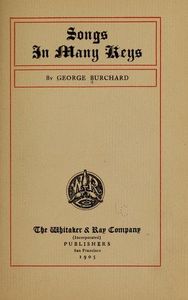Boston: Ticknor & Fields 1862. Ticknor & Fields. Boston, 1862. First Edition. Purple blind-stamped cloth, gilt spine lettering, aeg, slightly shaken. Very Good copy. With the book listed in the advertisements as " In Press"; ads dated Novemenr 1861. Contents included the celebrated poems: 'The One Horse Shay ' and 'The Chambered Nautilus'. Bookplate of Otto Orren Fisher. Prev. own's sig. dated Christmas 1861. 308p
The book contains many Civil War poems, including A Voice of the Loyal North, mentioned below, Army Hymn, Union and Liberty, etc. A great gift idea.
Oliver Wendell Holmes, Sr. (August 29, 1809 – October 7, 1894) was an American physician, poet, professor, lecturer, and author. Regarded by his peers as one of the best writers of the 19th century, he is considered a member of the Fireside Poets. His most famous prose works are the "Breakfast-Table" series, which began with The Autocrat of the Breakfast-Table (1858). He is also recognized as an important medical reformer. Soon after South Carolina seceded from the Union in 1861, Holmes began publishing pieces—the first of which was the patriotic song "A Voice of the Loyal North"—in support of the Union cause. Although he had previously criticized the abolitionists, deeming them traitorous, his main concern was for the preservation of the Union.
In September of that year, he published an article titled "Bread and Newspapers" in the Atlantic, in which he proudly identified himself as an ardent Unionist. He wrote, "War has taught us, as nothing else could, what we can be and are" and inspiring even the upper class to have "courage ... big enough for the uniform which hangs so loosely about their slender figures."
Holmes also had a personal stake in the war: his oldest son, Oliver Wendell Holmes, Jr., enlisted in the Army against his father's wishes in April 1861 and was injured three times in battle, including a gunshot wound in his chest at the Battle of Ball's Bluff in October 1861.
